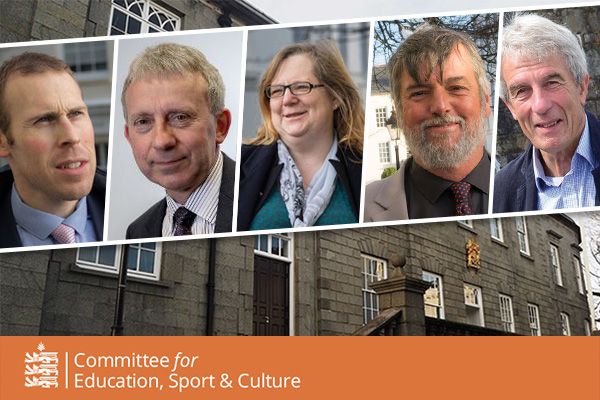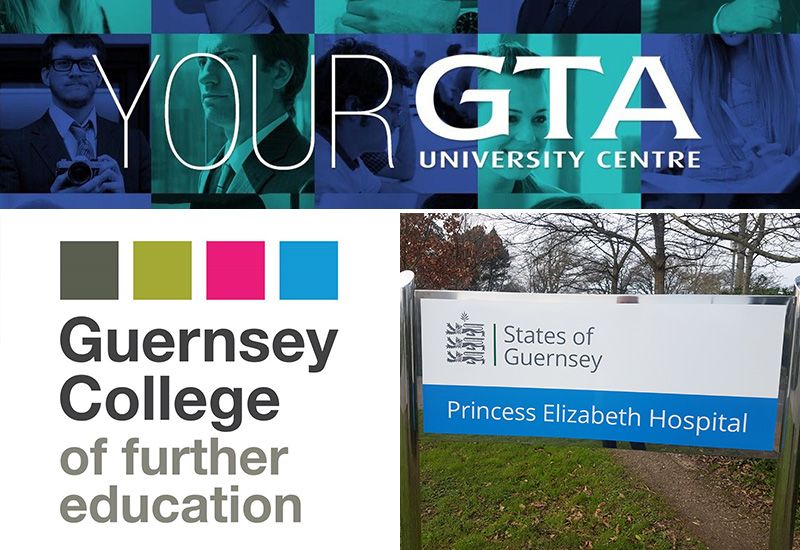


The Education, Sport & Culture Committee will be meeting teaching unions today to discuss what happens next following the approval of the "pause and review" requête - and will be leaving it up to the States to decide their future.
The Committee will shortly submit a policy letter to the States proposing directions on several issues left unresolved by the recent States’ debate on the future of education.
The States last week paused the introduction of one school over two 11-18 colleges so that the Committee can draw up comparisons with other educational models.
However, the scope of that review needs to be specified further.
The Committee wants to safeguard the Guernsey Institute, a sentiment which was reflected by the 'pause and review' requete signatories during debate. However, under the terms of their requete, some of the education models the committee is tasked with "are not compatible" with the new Institute.
The review is also set to include education models which the Committee believes the States "have no serious intention of taking forward", but which were previously considered, such as creating middle schools for children between the ages of 11 and 14.
The review also does not currently require assessment of three 11-18 colleges, which was debated in some detail in the States and, according to the committee, should be included because it "is seen by some people as a reasonable compromise incorporating 11-18 providers for all secondary students but on three sites rather than two."

Pictured: The planned merger of the island's further and higher education establishments into the Guernsey Institute has been widely supported by the profession.
ESC President Matt Fallaize said his committee was proposing to remain in office because it is "best placed" to commence the review, but recognises that it needs the renewed authority of the States to do so.
The Committee’s proposals, which are set to be discussed in the States this month, will include one that will ask the States whether it has confidence in the committee remaining in post for the final weeks of the States’ term.
“After the events of last week, the Committee has spent a few days considering the review of secondary education models which now needs to take place," he said. "Whether it is our Committee or another, we believe there is a clear need for the States to provide clarity on the models that should be reviewed."
“If uncertainty for parents, students and schools is not to be prolonged beyond what is now inevitable, the review needs to be thorough but swift and it needs to be focused to a limited number of models. There also needs to be wide understanding from the outset about the level of detail required of each model to be included in the review. Without this, there is a high risk that in 12 or 18 months’ time the debate will be in the same position as now and no progress will have been made.
“We are also mindful that during the recent States’ debate a reasonable level of enthusiasm was expressed for three 11-18 colleges, yet the current directions do not require this model to be included in the review. It needs to be put beyond doubt that it should be included.
“Once you remove models that simply do not work if you want to keep The Guernsey Institute as presently conceived and once you get into the review the models seriously discussed in the lead up to the recent States’ debate, you are left with a relatively small number of models.
"Our policy letter will explicitly list them so that the States can provide not just our Committee but the next Committee and their officials with much-needed clarity about what the review should include and exclude and what level of detailed analysis of models is required. This will keep costs down, allow the review to proceed more swiftly than it would otherwise and allow the Committee to work with the profession on the realistic options in a focussed way.
Ultimately, Deputy Fallaize said it was up to the States as a whole to decide his committee's future.
"We propose to remain in office to commence this work and to continue to lead the wide range of other areas of policy under our mandate, including shortly taking to the States policy letters on our Plan for Sport and a new Education Law.

Pictured: The States of Deliberation will decide Education's fate later this month.
"We respect that we can continue only with the renewed authority of the States and if the votes in the States show that colleagues have lost confidence in the committee then we will of course step aside and a new committee will be formed.
"Whether it is our Committee or a different Committee, the directions for the review of secondary education models still need more clarity than provided at present.”
The committee is set to meet union leads representing teachers and support staff in schools to discuss the proposed next steps.
The Committee will write to parents of students in the next 24 hours to provide as much information as is possible at the present time on issues such as admission arrangements to secondary schools.
Pictured top: The ESC Committee.
Comments
Comments on this story express the views of the commentator only, not Bailiwick Publishing. We are unable to guarantee the accuracy of any of those comments.